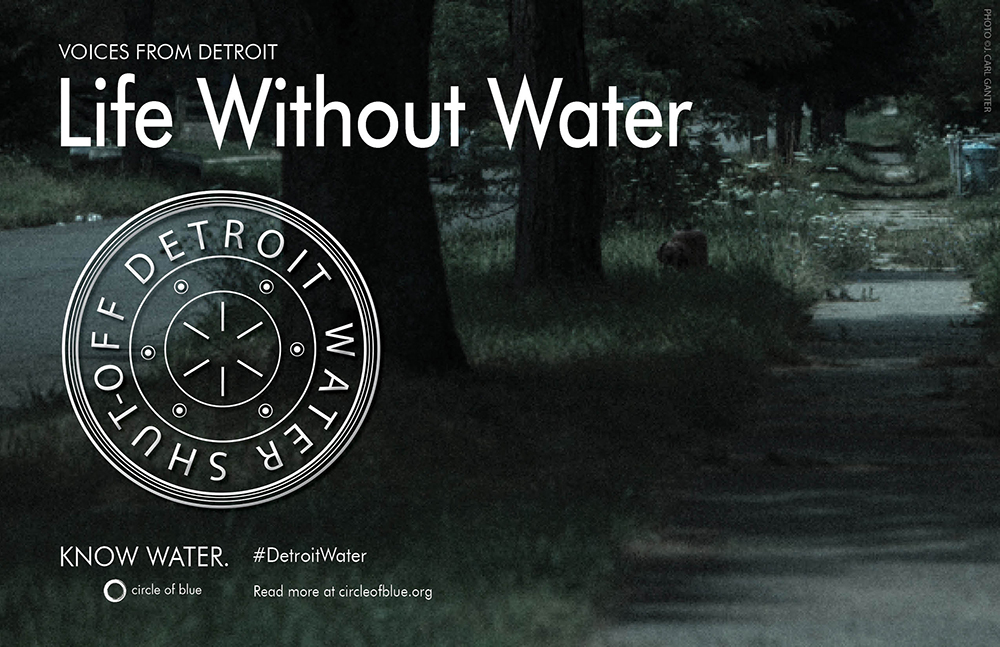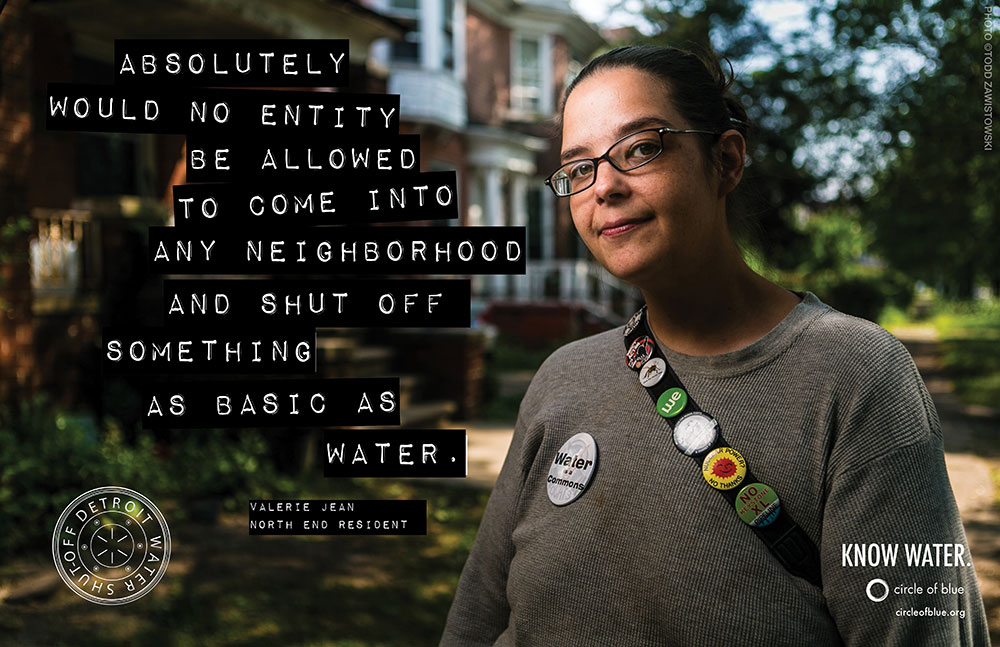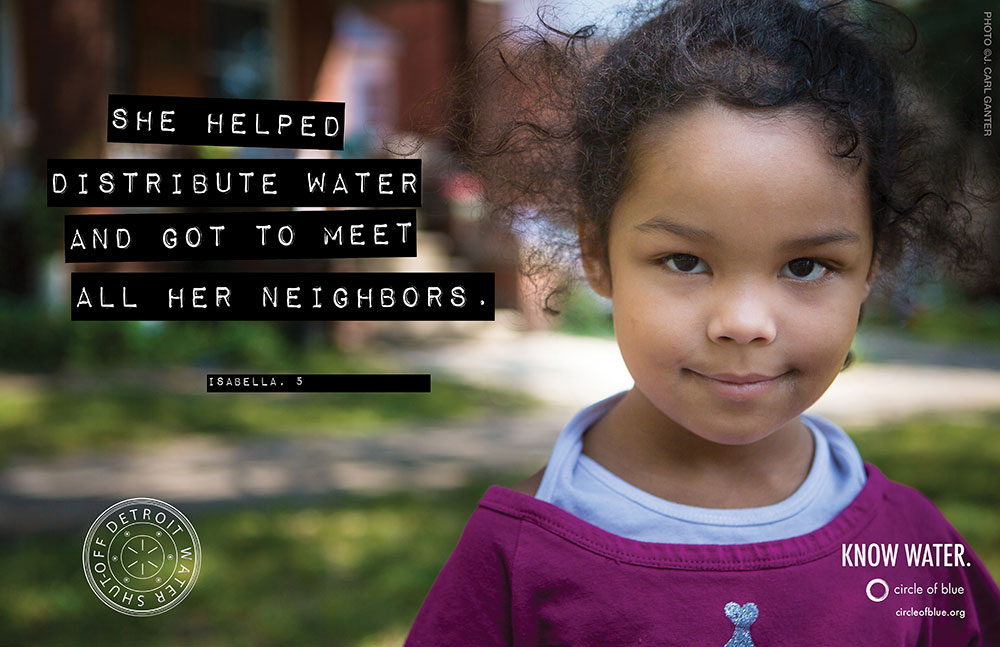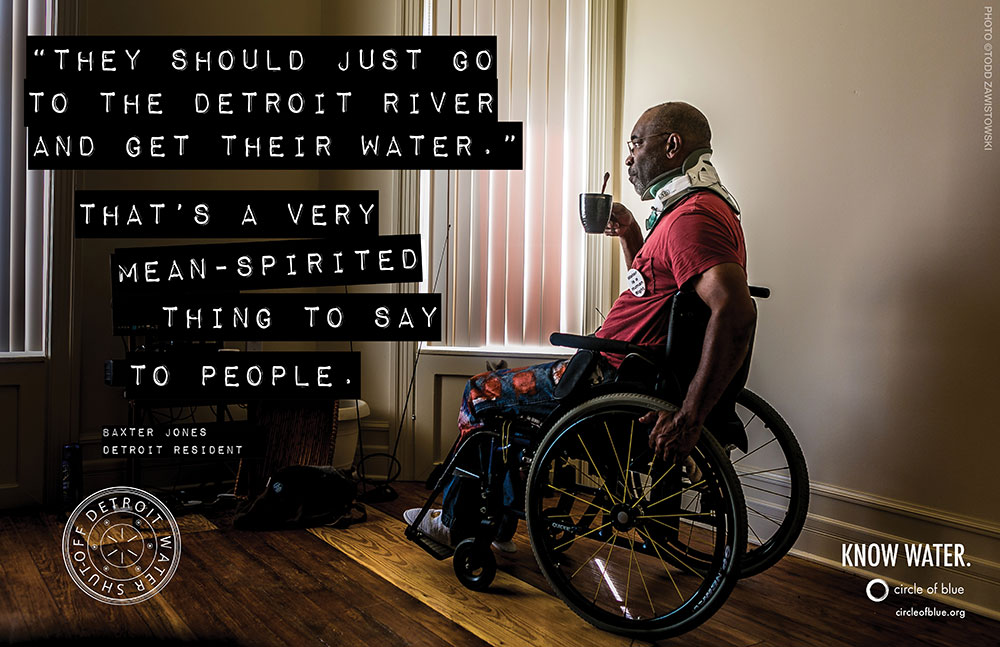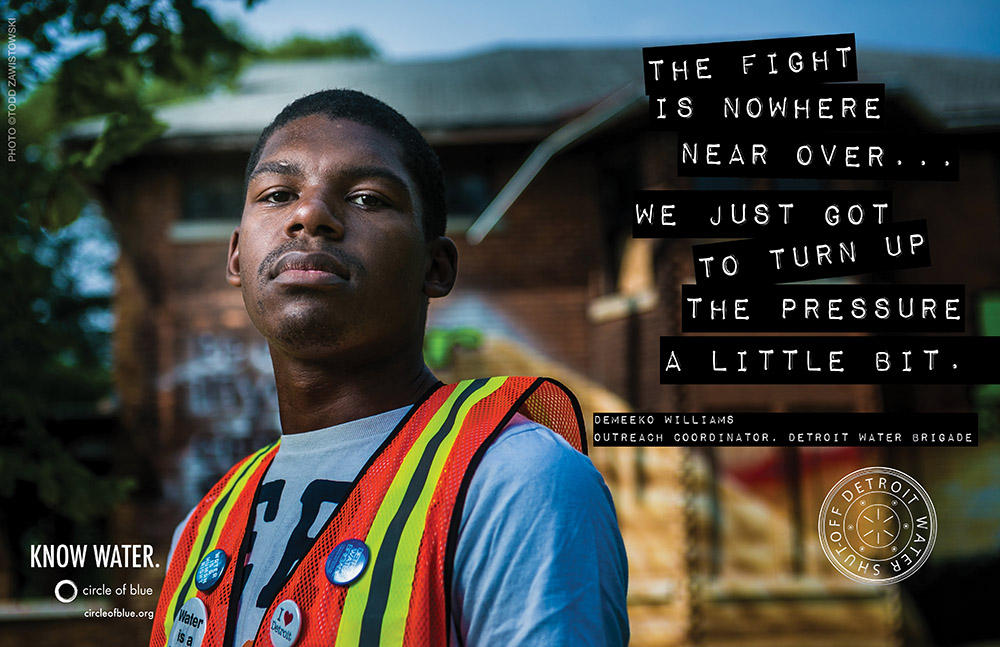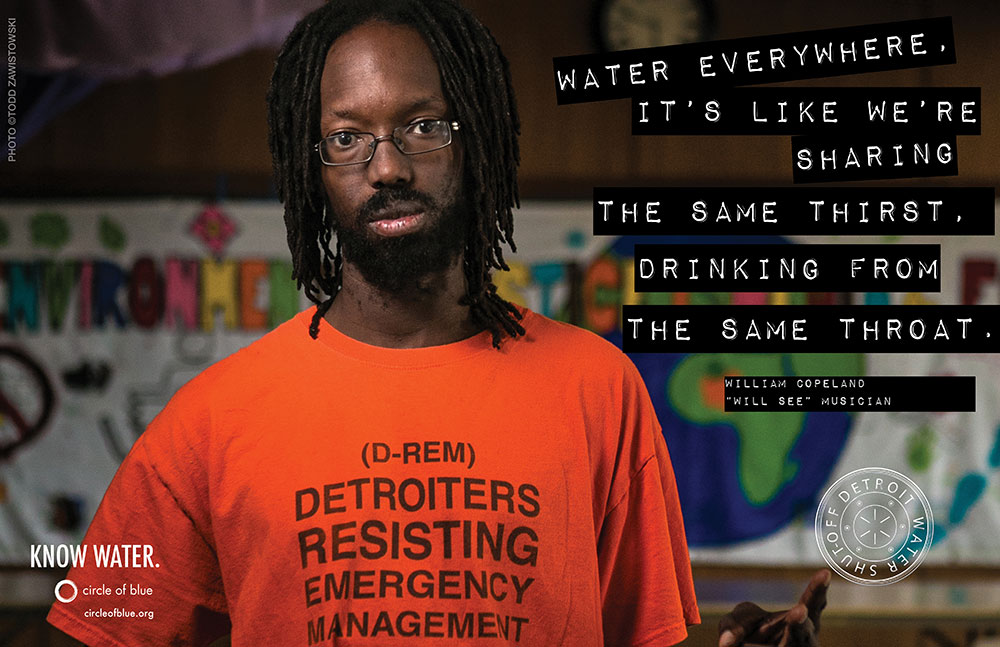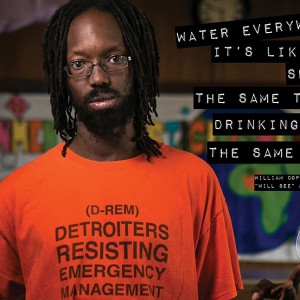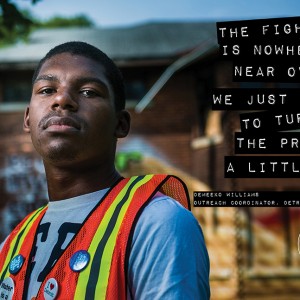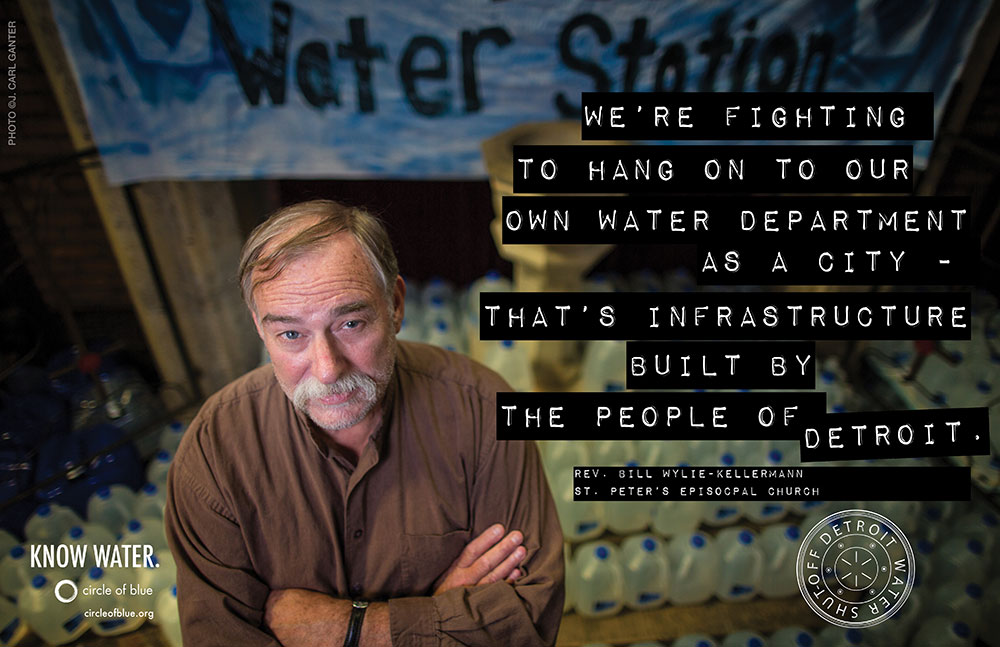
About 150 yards from St. Peter’s Episcopal Church, a yellow sign with faded blue letters reads “Tiger Stadium Parking, EZ Out Anytime, Flat Rate.” The church, situated in historic Corktown, Detroit’s oldest neighborhood, has seen the city’s baseball team come and go. There is an old yellow school bus out front that has “Democracy On Wheels” painted across one side and “Free The D” across the top. Outside, there is a nondescript body sleeping on each door stoop, flanking the neo-gothic building. Inside, there are piles of kids’ toys on two of the long wooden pews, and one corner of the large cathedral room has been dedicated to bags of food donations. In the back of the room, soft light permeates the air through tall stained glass and falls on hundreds of gallons of water in plastic jugs, all lined up around the baptismal font. Reverend Bill Wylie-Kellermann, 65, explains that his church is one of three that are serving as emergency water stations for distributing water to people who have been shut off. Bill drafted a letter opposing the shut-offs, and it has since been signed by some 75 bishops, heads of judicatories, pastors, and other religious leaders within the city. He hopes that the next step will be taking direct action, where people are putting their bodies in the way on behalf of the people who are being shut off. Bill himself recently did this; with a long history of nonviolent direct action, he was among those arrested in July for blocking Homrich’s trucks. During the past year, he has been resisting the city’s emergency management, which he says is both about pleasing corporations and moving people out of certain neighborhoods to reorganize the city spatially. “Mortgage and tax foreclosures have done that in a massive way,” Bill says. “And now the patterns that we’re beginning to see suggest that the water shut-offs are also related to clearing mostly people of color out of the city.” In addition, he worries about privatization of the public water utility. He points to other examples – hospitals, the downtown, the police department, public spaces – that are also increasingly becoming privatized. Despite setbacks, Bill says he will keep fighting through non-violent means “Not privatizing, not commodifying, water in any way is the goal, and part of that just means hanging onto the water department as an asset of the city of Detroit so that it serves the people.”
More Voices from Detroit
is a Traverse City-based assistant editor for Circle of Blue. She specializes in data visualization.
Interests: Latin America, Social Media, Science, Health, Indigenous Peoples

